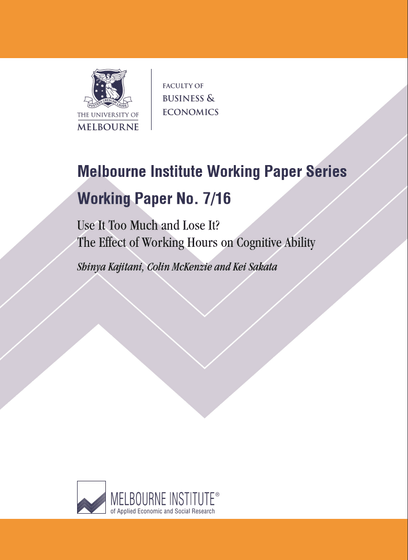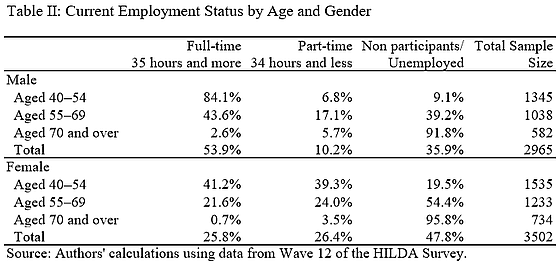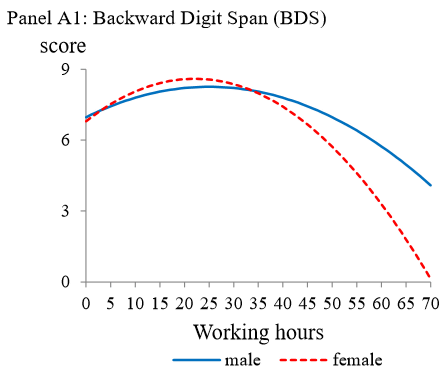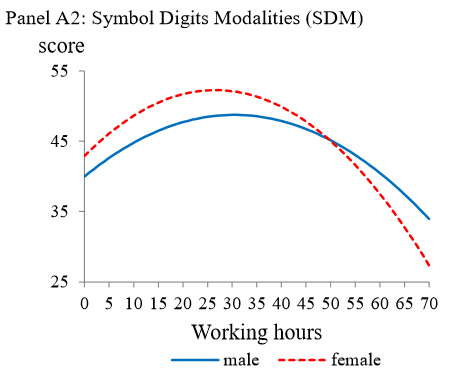Working over 40 years old and working more than 25 hours a week will adversely affect recognition ability

ByKarl Bedingfield
We investigated the working hours and cognitive abilities of people over the age of 40 years old and found that the cognitive abilities are adversely affected if the working hours of one week exceeds 25 hours.
Use It Too Much and Lose It? The Effect of Working Hours on Cognitive Ability - Shinya Kajitani, Colin McKenzie and Kei Sakata
(PDF file)https://www.melbourneinstitute.com/downloads/working_paper_series/wp2016n07.pdf

This is the Faculty of Economics, Meisei UniversityShinya KajitaniAssociate Professor, Faculty of Economics, Keio UniversityColin · McKenzieProfessor, Faculty of Economics, Ritsumeikan UniversityKei SakataIn a study by a professor, Melbourne University's "The Household, Income and Labor Dynamics in Australia (HILDA) Survey"Survey results on changes in households, income, and labor are used, that is,
The subjects were 2965 men over 40 years old, 3502 females. The table below shows the percentage of subjects by age group and working hours.

Three methods were used to identify cognitive abilities.
The first is "Backward Digit Span (Reverse Order Casting)", which repeats the numbers read by the researcher in reverse order. The second is "Symbol Digit Modalities Test (SDMT)", A symbol and a number between 0 and 9 are paired and answer orally by writing a number corresponding to the randomly indicated symbol. The third is "National Adult Reading Test (NART: National Adult Reading Test)". In general, a test of 50 words is used, which is to show subjects to read their cards in English idioms, where 25 tests were used here.
Graphical representation of the results of Backward Digit Span's survey is shown, the solid blue line is male and the red dashed line is female. In both cases, the score is higher in around 25 hours than when the working hours are 0, and from there it gradually goes down.

This nonlinear result was the same for other tests. The result of SDMT looks like this.

And the result of NART.

Specifically, if it is up to 25 hours per week, the increase in business hours had a positive influence on cognitive performance, but if it exceeds 25 hours, the increase in business hours adversely affects the recognition ability It was.
If we say 25 hours a week, even if we are off work on Saturdays and Sundays 5 days a week 5 hours a day. It is impossible for ordinary work to fall below this, but if a part-time worker does not have wage problems, it may be Ali to put 25 hours as one criterion.
It might be best to go to a comfortable job a little bit when you are over forty.
Related Posts:
in Science, Posted by logc_nt







